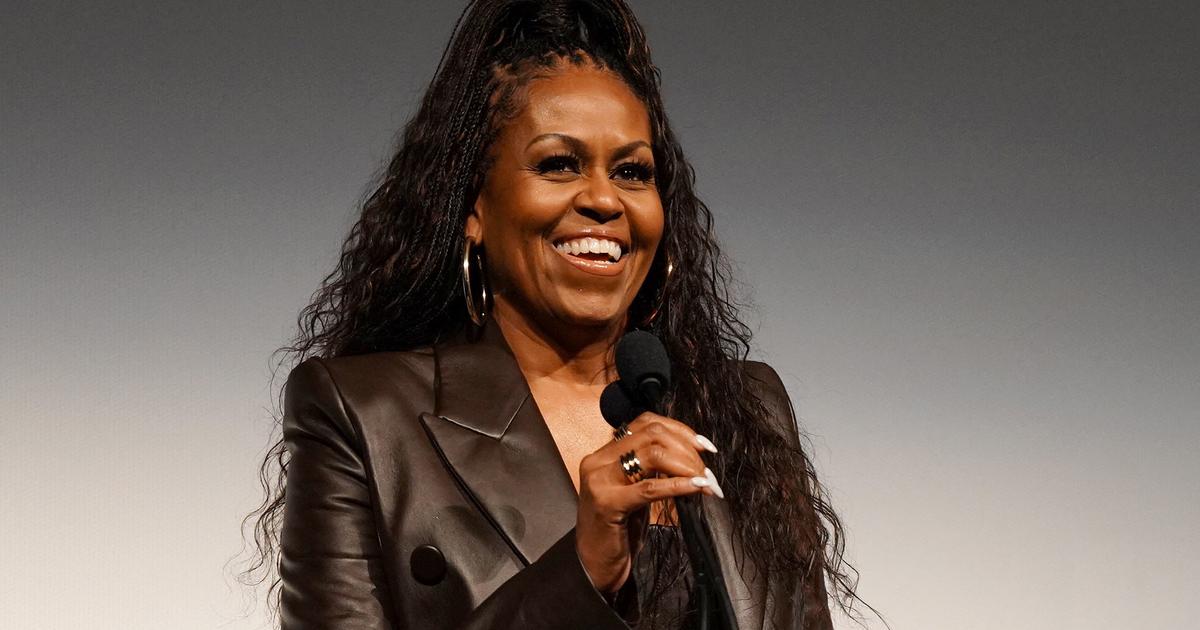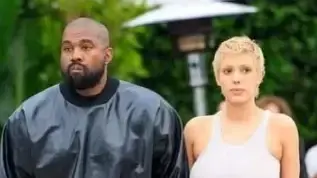The album that reinvented music
After becoming the biggest band in the world and sweeping millions of female fans with songs about love, the Beatles members were challenged to mature as artists.
Armed with plenty of drugs and creativity, they converged on a studio in Abbey Road, and emerged with a historic revolution.
On the occasion of its re-release - this is the story of the album that changed the world
Salon associate
03/10/2022
Monday, October 3, 2022, 3:00 p.m
Share on Facebook
Share on WhatsApp
Share on Twitter
Share by email
Share in general
Comments
Comments
Editor's note:
The Beatles' classic "Revolver" album from 1966 will be reissued at the end of the month, in a fancy and luxurious box.
The "Super Deluxe" version will be released on October 28 and will include five discs with a new Dolby Atmos mix by Giles Martin, son of the original album's producer, Sir George Martin.
The new release will use the technology used by Peter Jackson in the "Get Back" series that manages to reproduce the original sounds that were recorded, before they were cooked in the studio and will add 33 pieces that have never been heard from the album's recordings at Abbey Road Studios.
On the occasion of the happy occasion, we decided to re-dive into the story of the great album, as published here on the website to mark the 50th anniversary of its release.
Ringo was the first.
In many ways he was always the first.
Who is considered by many to be the most neglected member of the most groundbreaking band in the history of rock, has proven more than once that he is actually the true pioneer of the Beatles.
50 years after the release of the masterpiece "Revolver" on the world air, it is time to cherish Ringo, without whom this perfect album would not have been born.
It happened two years earlier, on August 28, 1964 at the Delmonico Hotel in New York, at a party in the suite of one, Bob Dylan.
The American Nephil sent one of the Beatles' stagehands to buy some "cheap wine" and while they waited for the alcohol to arrive, offered to roll them a joint.
Band manager Brian Epstein looked at his four stars with concern, and finally turned to Dylan and said: "None of us have ever smoked marijuana."
Dylan looked at his guests in disbelief and said: "But you had a song about it. The song is about Getting High."
The surprised band members looked at each other in embarrassment.
John finally broke the silence and said: "What song are you talking about?".
Dylan, in response, started singing a section from "I Want To Hold Your Hand":
And when I touch you I feel happy"
Inside
It's such a feeling that my love
I get high, I get high, I get high".
More on the same topic
Ingenious, groundbreaking, revolutionary: 50 years of the Beach Boys' "Pet Sounds".
To the full article
The band members tried not to laugh at Dylan's surprised face.
John, wearing a red shade of embarrassment on his Liverpool face, finally managed to blurt out: "These are not the words. We sing: I can't hide".
In response, the surprised Dylan handed a burning joint into the hands of John Lennon, and the latter, without thinking twice, passed it into the safe hands of Ringo Starr.
"He's our royal taster," John explained.
Ringo didn't hesitate, and without knowing the "rules of etiquette" he finished the whole joint himself, thus becoming the first Beatle to get high from the cannabis plant.
Seeing that it was good, the other friends joined him and spent the next few hours smoking and laughing.
At one point Paul McCartney started telling everyone who was able to hear: "I think this is the first time I really think."
The meeting with Dylan in New York and the introduction to marijuana completely changed the music and lyrics of the Beatles.
Dylan implored the world's most successful band to stop singing only about "love" and start writing deeper songs for their huge audience (at the same time, Dylan was greatly influenced by the Beatles, but we will expand on that, if the name and the editor will, on another occasion).
The change was immediate.
"We used to smoke marijuana for breakfast," John Lennon later said, "We got so caught up in it that it was impossible to communicate with us. We would just sit with hollow eyes and laugh the whole time."
In their next album, "!HELP", you could already hear the beginnings of the change that the band had undergone, especially in the writing of the lyrics, which became deeper and more personal (the theme song and "You've Got to Hide Your Love Away" stand out in particular - ibid. 'Van literally imitates Dylan's style, including in singing).
But it would be the next two albums, "Rubber Soul" and "Revolver," where the expanded consciousness of the Beatles would break out in full glory - with the band members' daily smoking upgraded by a new member named Acid.
More on the same topic
From the band that was almost buried to the baby that really died: the story behind The Beatles' "White Album".
To the full article
Starting to discover the acid.
The Beatles 1967 (Photo: AP)
"Rubber Soul", released in late 1965, stunned the music world.
The main change occurred in the songs written by John.
"Norwegian Wood", "In My Life" and especially the deep "Nowhere Man", which was the first Beatles song that was not related to matters of the heart.
In the article on the occasion of the 50th anniversary of the Beach Boys' "Pet Sounds" album, published here on the website, the obsession of Brian Wilson, the leader of the Beach Boys, with the Beatles' sixth album was described.
Wilson understood that this was a game-changing album and treated it as a declaration of war.
He did win the next battle, but the war almost buried him alive.
The Beatles were at a strange crossroads in the days leading up to the release of Revolver.
They suddenly discovered the Beach Boys in their homeland in the UK, and crowned Brian Wilson the musical genius of the generation.
In a survey by the magazine "New Musical Express" it was found that the group of surfers from California is the most popular band in Great Britain - before the Animals, the Kinks, the Hemi, Cream, the Rolling Stones and yes, before the Beatles.
While in the US, Beatlemania was replaced by Christian outrage over John Lennon's statement that the Beatles were "bigger than Jesus". The band members found their confidence in drugs. "I think the drugs affected 'Revolver' a little more than any other album," Ringo later said Starr, "I don't remember us being on particularly hard drugs at the time, just LSD and weed, as always.
In the recordings themselves we were never stoned.
We would work hard.
This is perhaps the most important thing to know about The Beatles - we would work like dogs to get the right result." And the result of "
John Lennon's dominance as a songwriter, which began on the last two albums, was balanced by a surprising creativity for the time on the part of Paul McCartney - and if that wasn't enough, George Harrison also contributed three strong songs to the album, including the opening track "Taxman" (work Bassist McCartney's extraordinary guitar probably didn't hurt him to start the record), which was the first Beatles song to touch on politics.
More on the same topic
Once in a Lifetime: The Wonderful Story of "Sergeant Pepper" - The Beatles' Masterpiece Album
To the full article
The grave of Eleanor Rigby, outside the church of St.
Peter in Liverpool (Photo: GettyImages)
Musically, "Revolver" can be seen as the direct continuation of "Rubber Soul", as the band explores more and more musical styles - be it R&B, country, Indian music and even children's songs - every "experimental" song of the band has become a hit.
When the rumors of what Brian Wilson was cooking for them in the studios in California reached their ears, the Beetles decided to abandon EMI's famous recording studio on Abbey Road in London, and travel to record the album in more advanced studios in the USA. EMI informed the band that they were not going to finance the band's stay overseas and the friends They stayed to work at Abbey Road.In retrospect, this may have been the decision that made the album what it is - because in the studio in London they had sound engineer Ken Thousand waiting for them.
Thousand is one of the forgotten figures of the music world, but his part in "Revolver" and the music that the Beatles made after him (and all the other bands that imitated it) is priceless.
The sound technician, then 33 years old, had already worked with the band on "Rubber Soul", and naturally continued with them also to work on the album that would become "Revolver".
The Beatles showed up at Abbey Road Studios at eight in the morning with a new song John had written called "Tomorrow Never Knows", which came with his unusual request from legendary producer George Martin: "Make my voice sound like the chant of a hundred Tibetan monks."
The outdated and primitive equipment at the Abbey Road studios was not enough to produce such sounds, so John suggested that they tie him from the ceiling of the studio with his feet up, and rotate him around a microphone that would be placed in the center of the studio.
For some unknown reason, the British music technicians did not cooperate with the lovely idea - and instead used a Leslie speaker,
that sells more writing that is connected to the Hammond organ.
Without going into technical details, these are speakers that rotate like a carousel.
When Lennon's recorded vocals were played through the rotating speakers, the desired result was obtained.
At this point, as was customary in those days, John was asked to sing his vocal parts again to "double" his voice.
This is not an easy task at all for a singer.
The goal is to sing in exactly the same timing as in the original performance, to enrich the tone of the voice above the music.
John had always hated this process, saying he didn't understand what it was important for.
After the first exhausting performance, he announced that he did not stay to perform the song again, because his head hurt.
Lennon's "headache" caused Thousend to return home frustrated.
At four o'clock in the morning, when he couldn't fall asleep, he tried to think: "There must be a simpler way to do it."
So he invented the ADT (Artificial Double-Tracking) method - and again, without going into too many technical details - we'll just explain that he changed the way music was recorded from that day on.
Those who are still interested in understanding how the groundbreaking method works, in this video you can see Thousend himself explaining his invention:
More on the same topic
this is the end
To the full article
The Beatles used the ADT method that Thousend systematically developed in "Revolver".
George Harrison once said that they should have given Thousands all the awards the album won, because without him it wouldn't have sounded like it did.
As an unintended byproduct of the method invented to give more volume to the vocals, the band was given the option for the first time to artificially increase the speed of the playing - as well as play the music front to back.
The friends from Liverpool did not give up the opportunity to play with the new toy they were given.
It all started by mistake, one of the technicians pressed the wrong button and one of the recordings played backwards instead of forwards.
"What the hell happened now?", recalled Paul McCartney, "Who in 1966 had heard such an effect? It was amazing. We said to ourselves 'God, this is great - can we use this on the album?'. And we did it."
"Revolver" very quickly became the album where the Beatles would say, 'Okay, that sounds great, now let's see how it sounds if we play it from end to beginning, or faster or slower,'" says Jeff Emerick, technician at Abbey Road Studio , who was only 19 years old at the time of the historic recordings. "They listened to everything they recorded upside down, just to understand how it sounded." Finally, the album included two songs that featured "upside-down" playing. In the psychedelic "Tomorrow Never Knows," and in "I 'm Only Sleeping", which features two guitar parts that George Harrison wrote from scratch (causing the band members to spend six hours in the studio trying to perform the parts simultaneously).
More on the same topic
Something about the way she moves
To the full article
But if you have to reduce "Revolver" to one song that makes it what it is, it is undoubtedly "Tomorrow Never Knows" that closes the album.
This is a groundbreaking and revolutionary piece unlike anything the Beatles (or anyone else) had recorded up to that point.
The Beatles, it should be remembered, did it in relatively primitive conditions, without the computers that Kanye West and Jay-Z use today to sample the same parts into their songs.
On the vocal sections that were recorded as no vocal section had been recorded before, "loops" of sounds were pasted.
Among other things, Paul McCartney's voice laughs (which on the album sounds like seagulls screeching);
The London Symphony Orchestra plays the C flat minor chord, two melotrons - one tuned to flute notes and the other to violin notes - and an untuned sitar, which is clearly heard in the song's instrumental sections.
In addition, the song includes Paul McCartney's guitar solo - which is played from the end to the beginning, and at a slow speed.
Even on a lyrical level, the Beatles never recorded a song with such lyrics, which drew inspiration from the "Tibetan Book of the Dead".
Oh, and Ringo's drums.
God, Ringo's drums!
No special effects or sophisticated recording methods - just a huge artist in action.
Tell me a little more about how he is the most neglected member of the band.
Apparently this is the most underrated musician in the history of mankind.
That's probably what it's like when you share a stage with John and Paul.
More on the same topic
"Tell My Wife I Love Her": The Beatles got off the stage, little did they know that their nightmare was just beginning
To the full article
"Tomorrow Never Knows" in a great scene from "Mad Men"
"Revolver" is much more than a groundbreaking album that invented a new recording method - it includes some of the greatest songs The Beatles ever wrote.
Paul McCartney "stole the show" from John Lennon, who was the significant creative force on the two previous albums, and contributed "Eleanor Rigby" with the string octet - which performed the score written by producer George Martin - "Yellow Submarine", the childish and Let's forget the magical "Here, There and Everywhere", which was even covered by a promising young Israeli singer named Eric Einstein.
Naturally, the audience fell in love with the album when it hit the stores.
It topped the UK Singles Chart for seven weeks, starting on 13 August, and spent 34 weeks on the chart.
In the US the album was released three days later, and there too it became a hit and spent six weeks at number one (although the original US version did not include the songs "I'm Only Sleeping", "
On August 12, 1966, less than a week after the album's US release, The Beatles left for America on what would become their final tour. In their 19 US shows, they performed 11 songs at each show, but none of them from "Revolver".
The band claimed that the album's songs are too complex to be performed live, and anyway they can't even hear themselves playing in front of the screams of the American fans.
The short tour ended at the end of August with their last show ever (at least paid) at Candlestick Park in San Francisco on August 29th.
From that moment they stopped being a band and became four mighty musical forces with even greater egos, who would try and succeed in producing the greatest music ever written.
Their decision to fight back against Brian Wilson and his "Pet Sounds" was already underway but in the meantime the four went their separate ways, unable to be around each other anymore (except for Ringo,
John, angry that Paul received more praise for the last album, flew to shoot a movie in Spain and took Ringo with him for company;
George, upset that he is not getting more credit, flies with his wife to meditate in India;
And Paul flew with his partner at the time to Kenya.
On the flight back from Nairobi to London, Paul tried to think of a way to bring the band together without the egos and the Beatles brand weighing them down, and came up with the idea of recording an album under the alter ego of an Edwardian-era military band called Sergeant Pepper's Lonely Hearts Club Orchestra, but that's another story to be told Another time.
culture
music
foreign music
Tags
The Beatles
Revolver
The Beach Boys
John Lennon
Paul Mccartney
Ringo Star
George Harrison




/cloudfront-eu-central-1.images.arcpublishing.com/prisa/HCD4VSRM6VHKTEK6OQ5QZXVVO4.jpg)



/cloudfront-eu-central-1.images.arcpublishing.com/prisa/ECLTGSPQSZHRVPM4NVCKYJTVTA.jpg)
